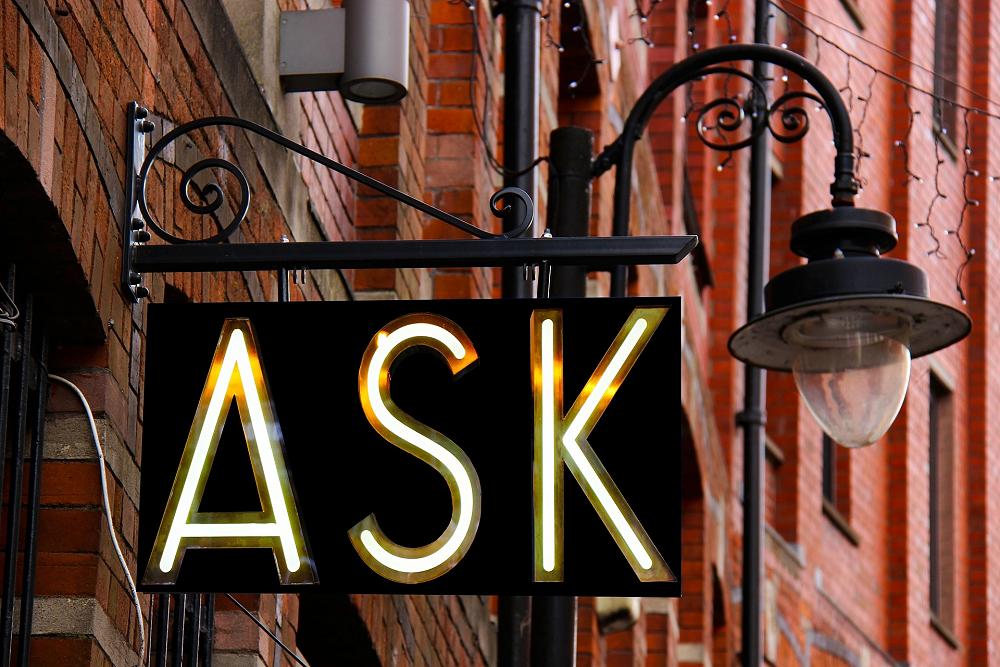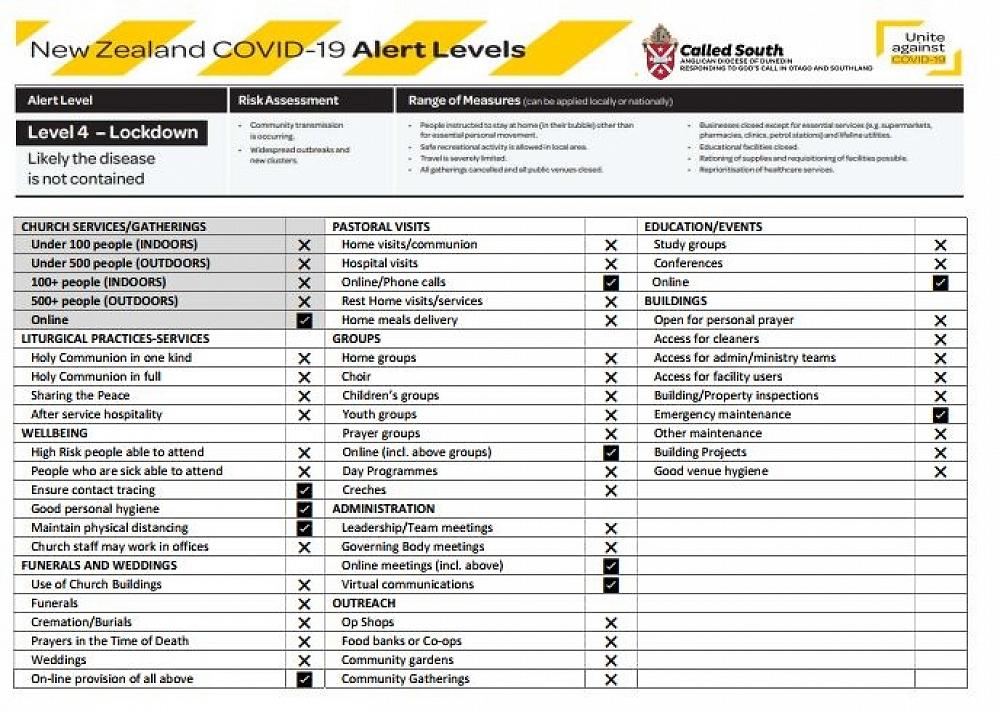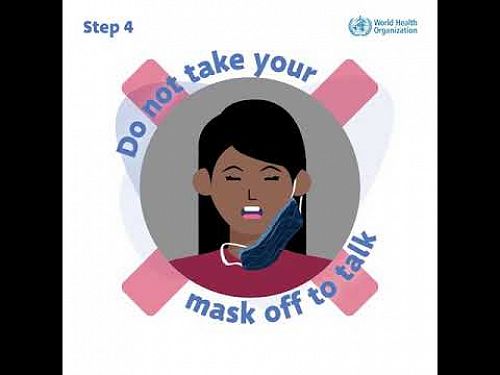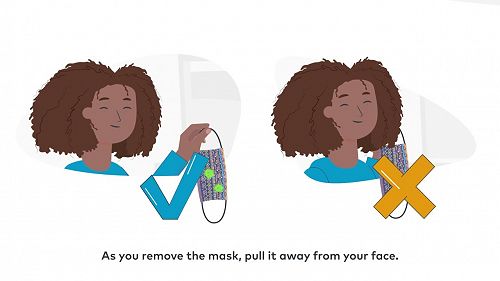
Frequently Asked Questions (FAQs) For Levels 3 and 4
We are working to keep you updated with information as it comes to hand. There is a summary chart for Levels 4 and 3 (attached below) that indicates what you can and can't do. We moved to Level 4 on Wednesday 18 August 2021.
If you have any questions that we have not covered below, send them to Andrew Metcalfe or Nicola Wong
Directions for Churches
There are ten (A-J) main sections below:
(A) Church services/gatherings, (B) Liturgical practice and Hospitality, (C) Well-being, (D) Funerals and Weddings, (E) Pastoral Care, (F) Church Groups, (G) Administration Activities, (H) Outreach, (I) Education/Events and (J) Church Buildings.

Under Levels 3 and 4, all church gatherings have ceased, including any regular hospitality that may have been offered. This means that the main way we continue to worship and keep in touch with each other is electronically (Video conferencing, telephone calls, emails, pre-recorded or live streamed services that have been pulled together remotely).
1. Will our churches open again?
Eventually they will. All services of public worship are cancelled until we are notified of an Alert Level change that may allow us to open again. No gatherings of any size can take place as everyone has been instructed to stay at home and avoid contact with other people.
2. How should we keep communicating this to our community?
By whatever means you can: email, Facebook, phone calls, etc. Notices should be in place on the church door that include essential contact details (phone numbers, email etc).
3. We are organising an open opportunity for worship, how do I publicise that?
The best way is through your own communication channels (e.g. by Facebook, email etc). Send John Graveston an email with the details so that we can add it to our On-line Worship web page.
4. How do we keep a record of people who have participated in on-line opportunities?
In the life of our church, statistics play a part of telling our story as we seek to understand trends in church attendance and engagement. Importantly, statistics contribute to our annual charities reporting as we fulfil a legal obligation to publicly articulate the role we play in the life of the wider community. The following guidance attempts to create a ‘consistent approach’ that will contribute to the story of the church during this time.
What services do I count?
Please count all the services that you would usually count if people were gathering physically in any other year. If you are not holding identifiable services, it is not necessary to record anything.
Where do I record the figures?
There is no reliable, consistent and accurate method for counting ‘attendance’ at this time across the diocese. As such:
- In the attendance column of your register – please record only the person ‘officiating’ at the service
- and anyone physically present with them (this will usually be a single figure number).
In the notes column of your register – please record the number outlined in the next section.
If you do not currently have access to your registers, please take notes so that figures can be added once you have access to the physical registers.
What do I count?
‘In principle’
In an ideal world, we would record the number of actual people attending a service. This cannot, however, be measured through all the major platforms. It is important that the statistics collected are consistent so that we can continue to summarise, analyse and use them.
Most platforms can provide the number of devices/computers connecting to a service, so this is the common measure that we will record during this time. We acknowledge that this number will under-represent the real attendance at a service, but this will form a part of the story we tell.
So – the principle – please count the number of ‘connections’ to a service (not the number of people who we might assume are attending through these connections). As examples, this can be applied to the major platforms:
YouTube
Please record the total number of views at the conclusion of the service being posted/recorded (i.e. for a 9am service that lasts for one hour, record the number of views as it stands at 10am).
Facebook Live
Please record the peak viewing numbers, as noted in the top left-hand corner of the screen, during the service.
Zoom
Please record the peak number of devices/phones connected during the service. It is acknowledged that with Zoom it is easier to count actual attendance by ‘counting heads’ on screen – this is, however, not consistent with the other major platforms so does not provide a relatable statistic.
The examples above will not cover every situation right now. Please do your best, however, to apply the principle of counting connections not attendance.
B: LITURGICAL PRACTICE AND HOSPITALITY
Under Levels 3 and 4, all liturgical practices and hospitality that would normally take place in Church or individual pastoral settings are continuing in different forms as church buildings are closed. Although this is difficult, there are opportunities to meet with each other virtually. Many of these are noted on our On-Line Worship webpage.
1. Is there are prayer that I can use to make an act of spiritual communion?
Yes - you can use the following:
My Jesus, I believe that you are present in the Most Holy Sacrament. I love you above all things, and I desire to receive you into my soul. Since I cannot at this moment receive you sacramentally, come at least spiritually into my heart. I embrace you as if you were already there and unite myself wholly to you. Never permit me to be separated from you. Amen.
In Levels 3 and 4 we continue to protect people who are vulnerable: older people and those who have underlying health issues that may risk their health and recovery if they are infected. We are following all of the Government advice around keeping a note of our movements and if we have had contact with anyone outside of our bubbles, maintaining good personal hygiene and physical distancing. We are not allowing anyone to work or access off-site church offices.
1. Someone in our ministry unit has tested positive for the current pandemic virus. What should we do?
If any Clergy members, ministry unit staff or parishioners test positive for a virus or pathogen that is of concern, please send details to the Registrar, including:
a) name of unwell person
b) date of confirmed positive test for COVID-19
c) best contact phone number
d) email address
e) are they employed and what they may be entitled to (see Coronovirus Workplace Leave and Pay Entitlements)
f) any support we can help with.
Funerals and Weddings are not possible under Level 4. See this page for advice.
Under Level 3, Funerals and Weddings can take place, but are limited to a maximum of 10 people and the venue they take place in must conform to strict hygiene standards. In our Diocese we are strongly recommending that church premises are not used unless authorised by the Bishop. For funerals, we recommend using facilities provided by funeral directors. No hospitality is able to be offered at weddings or funerals at this time.
Please note that the ability of a Priest to be able to offer funerals or weddings in this way this is dependent on their willingness and availability to do so (Priests who are classified in vulnerable categories will not be able to officiate).
1. Is there any way we can continue with a wedding or a funeral in Level 4?
Weddings will have to be postponed. In the event of any deaths, Clergy should work closely with the funeral director to establish how ministry at this critical time can still be offered to a family, perhaps using a live-streaming option to provide prayers and support and/or planning for a future memorial service.
Under Levels 3 and 4, no face-to-face pastoral contact or care is possible, but other forms of care (using technology or phone calls) can take place. You can't deliver home cooked meals, but you can check if someone needs to have groceries delivered. You can also assist them to access this if they are not able to organise things themselves on-line. We have some resources on our Community Response and Resources Page that people may find helpful, some of you may be able to print off and deliver (via NZ Post) for anyone who is not on-line.
1. I have an urgent pastoral situation and need to physically see someone, what action can I take?
We need to follow government directives on what contact we can have. Levels 3 and 4 requires everyone to stay at home. Physical contact risks passing on unwanted viruses from your household to someone else. Be creative in how you tackle this making sure that whatever you do you keep yourself and others safe. Phone calls, other messages, communicating through close family members are all options. If you need extra support or advice, contact Bishop Steve through Nicola Wong.
2. What about dropping something off in someone's letterbox? Or putting some groceries outside their door?
We recommend looking at the Government Advice around supporting Vulnerable People (this includes all our over 70-year olds, who have been asked not to leave their homes), including advice around shopping safely if you are delivering anything to them. Make sure you follow good hygiene procedures. If you deliver goods, ask them (from a 2m distance or via a telephone call) if they are able to follow the advice in the “shopping safety guidance” around washing vegetables and so on. Alternatively, they could leave non-perishable groceries in a safe place for 3 days (72 hours) which will ensure any viruses will die. Don't put notes or newsletters into people's boxes - time any information sharing so you can post it to them. By the time it is delivered, any viruses would no longer be active.
3. What should we do about regular pastoral visits?
Think about creative ways to offer pastoral care, for example, phone calls, text messages.
4. How else can we care for people?
Make a list of vulnerable or self-isolating parishioners or other friends, especially those with little or no family support. Keep in touch with those people by phone or email, to ensure they have support.
a) Consider what practical support they might need and what might be available e.g. delivery of groceries/supplies (see advice above). Or do they just need someone to talk to?
b) Consider allocating a support person to each member of your parish community and keep in touch with each other by phone or email.
c) Be mindful of the amount of supplies you have for your household or ministry unit. Don’t hoard or buy more than you need.
d) Some members of your community might be impacted financially by changes to their employment status or sources of income. Consider what practical support you can offer. Assistance can be found on www.workandincome.govt.nz.
5. What else should we do?
You should be communicating regularly with your communities with up to date information about the Diocesan response and following all guidance from the Government and Ministry of Health. Ask everyone who can to sign to The South Calling - Ko Te Tonga kei te Karaka for regular updates.
a) Keep an open line of communication to manage any concerns or anxiety regarding infection and ensure people have access to reliable sources of information.
b) Put signage on exterior doors referring people to online options or to who they should contact for support.
c) If you haven't already done so, some of you will be planning alternative ways to provide worship and ministry to your communities. John Graveston, our Child Youth and Family Educator, is available to consult with over this and may be able to organise some on-line collaboration.
You could include:
- Regular emails
- Podcasts or videos (these can be prepared simply by whoever can record themselves on a PC or other system, or curated from resources to hand)
- Use of social media/websites to publish prayers, readings, reflections, music, etc.
- Webinars
- Telephone trees
- Prayer chains
- Audio/video conferencing for services or smaller gatherings such as home or study groups.
At Levels 3 and 4 all regular face to face groups are suspended. This includes home groups, choirs, children's groups, youth groups, prayer groups and any other programmes such as day centres and creches. Any of these groups are able to continue on-line: contact the Diocesan office if you would like some help to set something up via Zoom videoconferencing.
At Levels 3 and 4 all face to face leadership meetings (e.g. vestry meetings) and governing body meetings are not able to take place. Any of these meetings are able to continue on-line: again, contact the Diocesan office if you would like some help to set something up via Zoom videoconferencing.
1. How can I get in touch with the Diocesan office?
Phone the usual direct dial numbers and leave a message or send an email - we will get back to you.
2. How do I organise a Zoom meeting if I want to meet with others this way?
Have a look at our Contacts web page which gives information about this. We can allocate our Zoom accounts for Diocesan meetings, Parish connections (home groups, vestries etc) and for worship/other larger events streamed on-line. This page gives information about who to contact. Anyone has the option of getting a free account where you can meet with 100 people for 40 minutes (or unlimited one to one). Have a look also at our Zoom User Guide.
3. What about clergy and other workers in our Parish - what happens if they can't come to work?
The Diocesan Office will continue to pay all Parish employees, including clergy, administrators and cleaners their usual stipends and wages during Levels 4 and 3 and these will be invoiced out to the Parishes in the usual way.
Clergy and Employees will be paid for their usual hours whether or not they provide a timesheet. Parishes should reassure their employees that they will continue to be paid. If possible, employees should continue to work from home, but we recognise that this is not always feasible (particularly in the case of cleaners!). Parishes should not cease to pay their employees (whether they are actually able to do any work or not) – this is an extremely unusual and stressful situation and we do not want to add potential employment law issues into the mix. We will look at applying for the wage subsidy if this is required, currently you need to demonstrate a 40% reduction in income related to current restrictions. Have a look at this tool/calculator to see if you are eligible. For those who are not able to do their usual work, we are advising to pay the employee as usual and if possible to organise some way for them to do some work at home. If you have particular concerns about your individual situation please contact Andrew Metcalfe.
5. A lot of our offerings come in cash on the plate - our income is going to go down. What can we do?
It is likely that many parishes will experience a drop in income over the next few weeks due to the absence of envelopes and cash offerings at services. It is possible that some other income streams, such as car park rentals, may also be affected, depending on the terms of the lease. Some things that parishes may be able to do:
a) Ask parishioners to set up automatic payments for their donations rather than envelopes or cash (make sure that the correct bank account number is provided and remind donors to identify their payment with their name so that they can get a donations receipt).
b) Ask those who are able to consider giving a one-off extra donation (by internet banking) to help cover the short-term cash crisis.
c) Don’t make any rash decisions about leases or rental agreements.
d) Let the Diocesan Office know if the parish has a serious cash flow issue which is likely to affect the ability of the parish to pay wages or stipends.
6. What can we do if this affects our ministry unit financially?
a) Consider what financial implications could arise in your parish/ministry unit and how a downturn in income could be managed within your existing resources.
b) Make sure your ministry unit has at least three people able to authorise payments, in case one or more authorised persons becomes unwell.
7. We have not been able to hold our Annual General Meeting – what can we do?
(This information not applicable right now,,, but we are keeping it here for future reference) If your faith community has not held its AGM, all office bearers and Synod Reps remain in place at this time. If you are able to organise the business of your AGM in other ways e.g. via a combination of emails, phone calls, via a Video conference (Zoom), this is acceptable in a Level 3 or 4 event that is prolonged. Any decisions made should be ratified at a general meeting called when you are able to meet again in person.
8. What about Synods and other occasions that are in the Calendar?
The Synod planned for 2021 may be affected, but we will maintain the time frames for paperwork required, so it is ready to be re-organised quickly in the future, including holding Synod on-line if required. All other meetings (such as Diocesan Council and the Dunedin Diocesan Trust Board) will continue as scheduled, but will take place via Zoom, and not in person.
At Levels 3 and 4 all outreach activities (that will usually involve face to face contact) cannot take place. This includes any op shops, local food banks or cooperatives, community gardens and any other community gatherings.
1. We don't just give money, we bring food items for our local food bank. What can we do?
You may be able to make an individual (or parish) financial donation during this time to local organisations that provide food and other essentials for people in need. Get in touch with the organisation you support and see what would help. They may have a system in place for dropping off goods if you ask them.
At Levels 3 and 4 any study groups or conferences are not able to be held in person. However, some of these may be able to continue on-line: have a look at the Community Responses and Resources web-page for some opportunities that are available.
At Levels 3 and 4 all public buildings are closed. This means that they are not open for personal prayer, access for cleaners, access for administration/ministry teams, for other facility users of your buildings, maintenance or building projects. You are able to arrange access for emergency maintenance. As indicated above, under Level 3, Funerals and Weddings can take place, but are limited to a maximum of 10 people and the venue they take place in must conform to strict hygiene standards. In our Diocese we are strongly recommending that church premises are not used unless authorised by the Bishop. For funerals, we recommend using facilities provided by funeral directors. No hospitality is able to be offered at weddings or funerals at this time.
1. Does this mean our churches are ‘out of bounds’?
Yes. All church buildings must remain closed. Any requests for access must be authorised by the Bishop.
2. Significant Feast Days are approaching. How can we observe these?
If the country is in a Level 4 (Eliminate) or Level 3 (Restrict) when a major feast is taking place, you will need to consider how your community might this without physically gathering.
3. What if we are asked by authorities if they can use our buildings?
If there is a request to use (requisition) buildings by authorities or other organisations using essential services, please contact the Diocesan Office. Correct health and safety procedures will need to be in place to allow any extraordinary usage of facilities and ensure they are returned in a state that are safe to be used by the Parish or Church. This will include extra cleaning of surfaces that may have been touched/used and a 72 hour stand down from when they are were last used to when the Parish or another group can access them again.
4. A person with close contact exposure or undergoing a test for the current identified virus or a suspected or confirmed case the virus has recently been in the ministry unit/church buildings/office. What should we do?
Call the Healthline immediately. In confirmed cases of COVID-19, local government health departments will be in contact to discuss the case and find out who has been in contact with the individual and advise on actions to take with any necessary cleaning of communal areas if needed. Let the Diocesan Office know (Registrar phone 03 488 0821) so that we can assist with decision making and management. Follow Government advice and guidance for yourself and your own care.
Gallery





